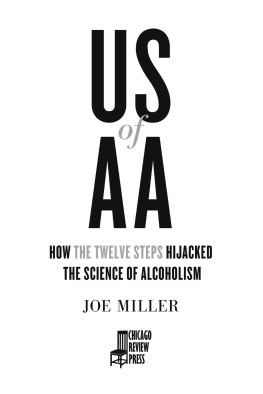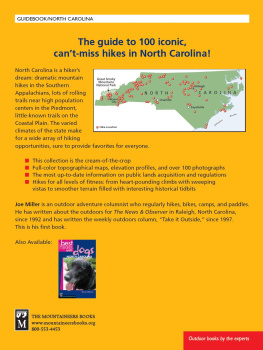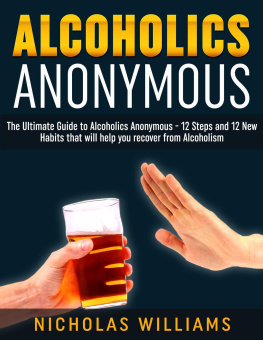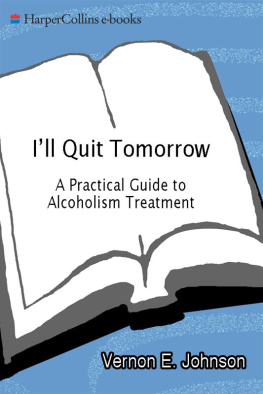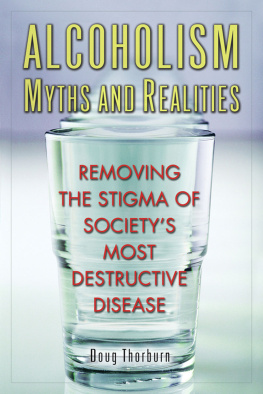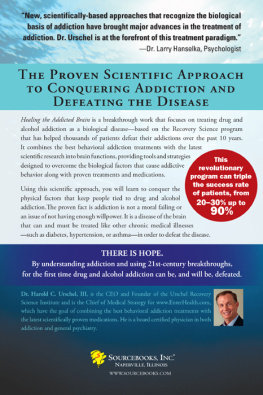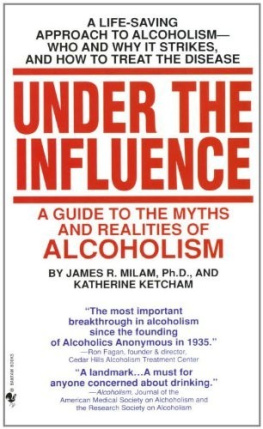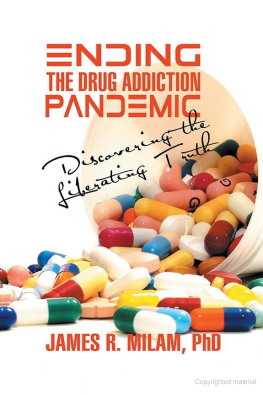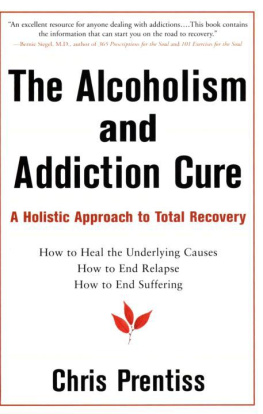PROLOGUE
WE CALL ALCOHOLISM a disease, but we treat it like a story: an alcoholic takes a drink and its like a switch turns on insidefor years and years they drink and drink, powerless to stop or slow down, even as their lives crumble around them. But there is a way out: Alcoholics Anonymous. After alcoholics have hit rock bottom, they go to AA, where they learn that they suffer from a disease, for which the only cure is God, who alone can remove their desire to drink, deliver them from destruction, and transform them into spiritual and selfless pillars of society. Its a classic story, a twisted variant of the heros journey, told and retold in countless memoirs, magazine and newspaper articles, movies and TV shows. Weve lived it with friends and family or we know people who have, and over the years of telling and retelling, its become an indelible truth.
I started living the story in my early twenties. Id binged all through my teens, and then something seized me from sleep one night, as if a hand had reached through my dreams, yanked me upright, and slapped my face. In the darkness my mind cleared and fixed on a stark choice: kill myself or get help. I managed to fall back to sleep, and the next day I called the county mental health office and told the woman who answered the phone I was losing my mind. She offered an appointment two weeks out. I asked if there was any help available for me to quit drinking, and she said theres AA. I found the number in the book, called, and got the answering machine, with the time and place for a meeting that day.
The meeting was at five in the afternoon in a narrow storefront downtown. It began with the Serenity Prayer, which Id read once in a Kurt Vonnegut book. I murmured along, eyes closed, head bowed. Then everyone looked at me and smiled. This would be a first-step meeting, the chairperson said. By tradition, he explained, whenever someone new came in, they would go around the circle, say their name and Im an alcoholic, and share their storieswhat their drinking lives had been like, what happened to them, and what their lives were like now, without alcohol. They all said they had a disease that made them drink long beyond drinkings usefulnessa disease of the body, mind, and spiritand they were utterly powerless against it, but they could break free with Gods help and the help of one another. Its progressive, they said of this disease, not only during active use but also when in remission. They told me a story about a man who had been clean and sober for many years, but he went back out and within two days he drowned in his own vomit. His disease had kept going after he quit, so when he started back up he died right awaybecause, unbeknownst to him, his disease had already killed him years earlier.
As my new friends went around the circle, I could nod in agreement at least once during each of their stories. I lit a cigarette and settled back in my chair, feeling warm and safe. At the end of the night they gave me a silvery tin chip that read 24 HOURS and TO THINE OWN SELF BE TRUE. For the next several years, I went to meetings not less than three times a week, most often more.
New people would arrive all the time. Some would stay; most wouldnt. We told each other that they werent ready, that they needed to suffer more before they were ready for help. Alcoholics need to hit bottom, we believed, in order to become willing to work the program and turn their lives over to the care of God. And some, we knew, never would. By AAs own accounting, 95 percent of the people who come to their meetings looking for help are among such unfortunates, as they say in the program; they quit within a year. Of that 5 percent who stay a year or more, about half remain members for good, achieving long-term sobriety. AA has a story to explain the dropouts, too. They havent suffered enough, havent hit a low enough bottom to make them willing to embrace the cure. They just need to drink more until their life is so horrible that theyre ready to trudge the road to happy destiny. And even then, many will never be ready, will remain forever incurable. In the words of a passage thats read at the beginning of every AA meeting:
They cannot or will not completely give themselves to this simple program, usually men and women who are constitutionally incapable of being honest with themselves. There are such unfortunates. They are not at fault; they seem to have been born that way. They are naturally incapable of grasping and developing a manner of living which demands rigorous honesty.
I wasnt going to be one of those people. I took on a sponsor, a corporate headhunter named David, a Big Book thumperan AA fundamentalist, one who believes that the solution to alcoholics every problem can be found in the first 164 pages of the Big Book, AAs basic text. We met for coffee, and he showed me how to do a fourth step, following the instructions from the Big Book exactly. I wrote down every resentment Id ever had against anyone, and then I went about figuring out where I was at fault in each situation. What it boiled down to was four character defects: selfishness, self-seeking, dishonesty, and fear. I worked on it every day, several times a day, and as I wrote I felt a kind of energy flow into me, not necessarily from what was going down on the pagethe words were so repetitive it was like being a kid forced to write self-admonishments over and over on a chalkboardbut because I was being active in my recovery, I was doing something to make myself better, and that felt good.
When I was done, I met with David and together we went through the fifth step: Admitted to God, to ourselves, and to another human being the exact nature of our wrongs. It took all of twenty minutes.
The Big Book promises:
Once we have taken this step, withholding nothing, we are delighted. We can look the world in the eye. We can be alone at perfect peace and ease. Our fears fall from us. We begin to feel the nearness of our Creator. We may have had certain spiritual beliefs, but now we begin to have a spiritual experience. The feeling that the drink problem has disappeared will often come strongly. We feel we are on the Broad Highway, walking hand in hand with the Spirit of the Universe.
But these feelings eluded me. When I finished the fifth step I felt a sense of accomplishment, but inside I was the same old me. In my journal that night I wrote a long, resentful screed against my roommate.
I graduated from college and drifted away from my college AA group. I landed a job at the local alternative weekly newspaper, a place where drinking was part of the culture. On Tuesday nights, as we worked late putting the paper to bed, my coworkers would make a beer run, and everyone would work with an open bottle next to the keyboard, everyone but me. I wanted one too, and I began to think that maybe I wasnt an alcoholic, that perhaps the problem that led me to AA years earlier was youth and immaturity. One night I had my coworkers over for a party at my apartment. They shoved their six-packs into the fridge next to my cans of sparkling water, and when the evening was done there were a few beers left. I thought about them all night and well into the next day. I took one out and popped it open. It was a local microbrew, a nut brown ale, and it felt good to sip it as I sat in the warm autumn sun. I went back to the fridge and had another.

